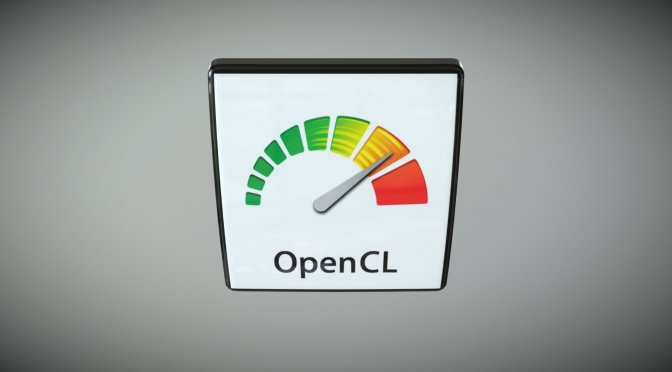The Khronos Group has publicly released the OpenCL 3.0 Provisional Specifications. OpenCL 3.0 realigns the OpenCL roadmap to enable developer-requested functionality to be broadly deployed by hardware vendors, and it significantly increases deployment flexibility by empowering conformant OpenCL implementations to focus on functionality relevant to their target markets.
OpenCL 3.0 also integrates subgroup functionality into the core specification, ships with a new OpenCL C 3.0 language specification, uses a new unified specification format, and introduces extensions for asynchronous data copies to enable a new class of embedded processors. The provisional OpenCL 3.0 specifications enable the developer community to provide feedback on GitHub before the specifications and conformance tests are finalized.
To cater to a widening diversity of OpenCL devices, OpenCL 3.0 makes all functionality beyond version 1.2 optional. All OpenCL 1.2 applications will continue to run unchanged on any OpenCL 3.0 device. All OpenCL 2.X features are coherently defined in the new unified specification, and current OpenCL 2.X implementations that upgrade to OpenCL 3.0 can continue to ship with their existing functionality with full backwards compatibility. All OpenCL 2.X API features can be queried, and OpenCL C 3.0 adds macros for querying optional language features.
Neil Trevett, vice president at NVIDIA, president of the Khronos Group and OpenCL Working Group Chair, said:
“OpenCL is the most pervasive, cross-vendor, open standard for low-level heterogeneous parallel programming—widely used by applications, libraries, engines, and compilers that need to reach the widest range of diverse processors. OpenCL 2.X delivers significant functionality, but OpenCL 1.2 has proven itself as the baseline needed by all vendors and markets. OpenCL 3.0 integrates tightly organized optionality into the monolithic 2.2 specification, boosting deployment flexibility that will enable OpenCL to raise the bar on pervasively available functionality in future core specifications.”
The Extended Asynchronous Copy and Asynchronous Work Group Copy Fence extensions released alongside OpenCL 3.0 enable efficient, ordered DMA transactions as first class citizens in OpenCL—ideal for Scratch Pad Memory based devices, which require fine-grained control over buffer allocation. These extensions are the first of significant upcoming advances in OpenCL to enhance support for embedded processors.
NVIDIA and Intel also commented on the release of OpenCL 3.0.
Jeff McVeigh, vice president, Intel Architecture, Graphics and Software, said:
“Intel strongly supports cross-architecture standards being driven across the compute ecosystem such as in OpenCL 3.0 and SYCL. Standards-based, unified programming models will enable efficiency and unleash creativity for our developers with the upcoming release of our new Xe GPU architecture.”
Anshuman Bhat, compute product manager at NVIDIA, added:
“NVIDIA welcomes OpenCL 3.0’s focus on defining a baseline to enable developer-critical functionality to be widely adopted in future versions of the specification,” said . “NVIDIA will ship a conformant OpenCL 3.0 when the specification is finalized and we are working to define the Vulkan interop extension that, together with layered OpenCL implementations, will significantly increase deployment flexibility for OpenCL developers.”

John is the founder and Editor in Chief at DSOGaming. He is a PC gaming fan and highly supports the modding and indie communities. Before creating DSOGaming, John worked on numerous gaming websites. While he is a die-hard PC gamer, his gaming roots can be found on consoles. John loved – and still does – the 16-bit consoles, and considers SNES to be one of the best consoles. Still, the PC platform won him over consoles. That was mainly due to 3DFX and its iconic dedicated 3D accelerator graphics card, Voodoo 2. John has also written a higher degree thesis on the “The Evolution of PC graphics cards.”
Contact: Email

